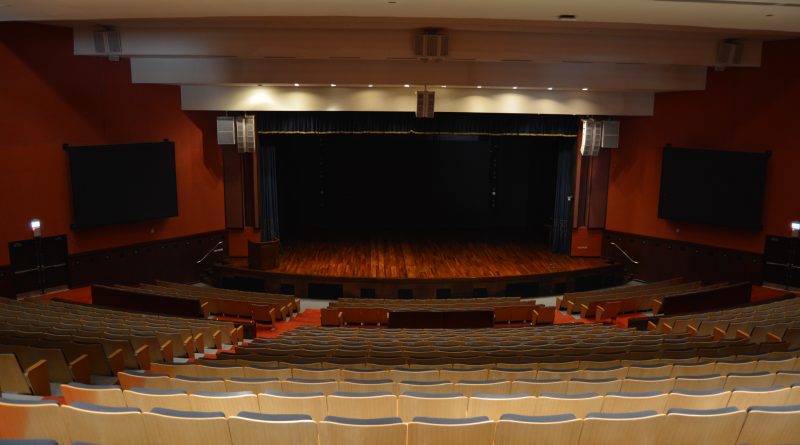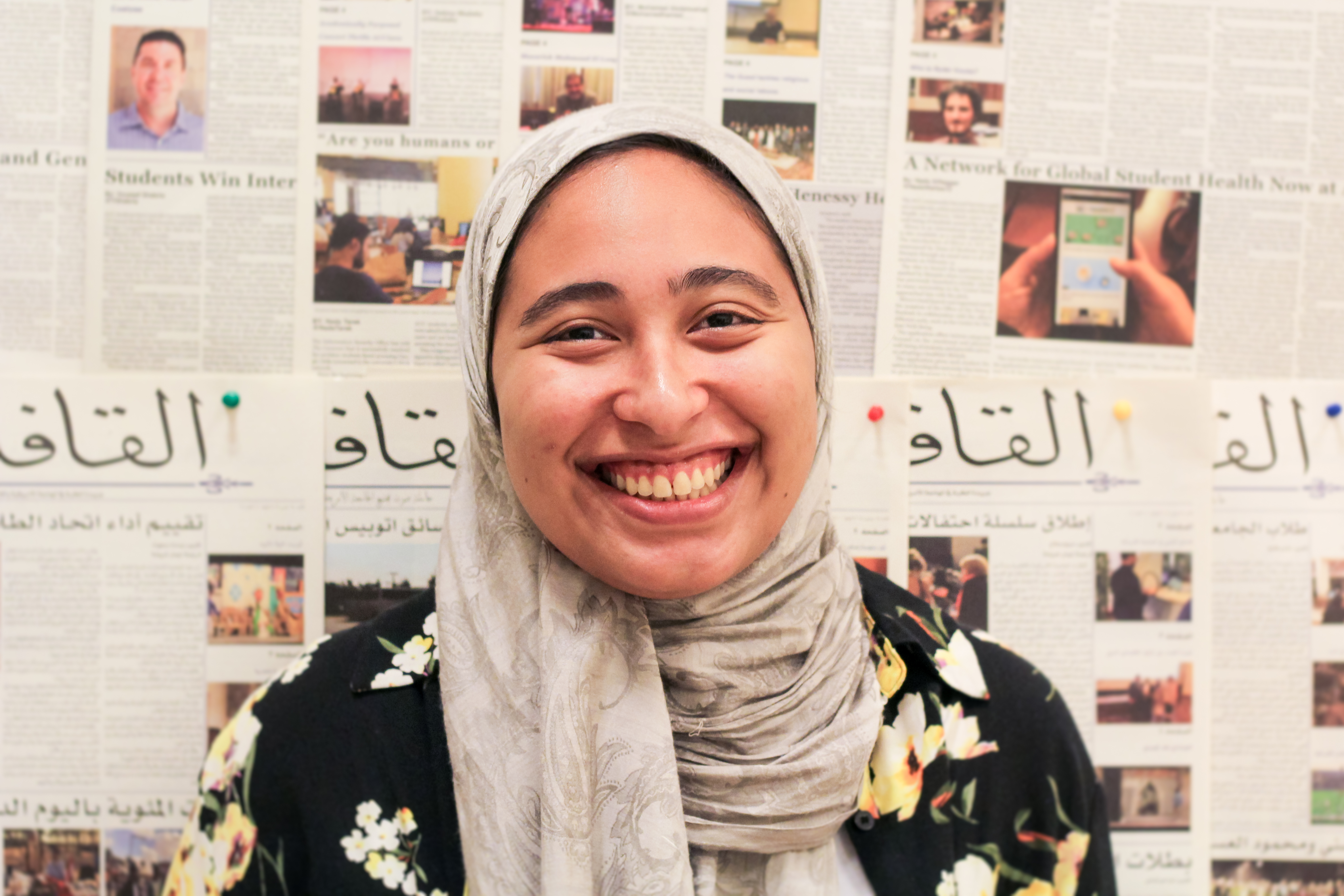Arts Department Readies for Return to Live Theater
By: Maya Abouelnasr
@EmEn1125
After a year and a half of online theatrical productions, AUC’s thespians are ready to take the stage again.
The two plays that are currently in the works for this coming semester are adaptations of Egyptian theater critic and playwright Rasha Abdelmoneim’s Attiya’s Windows (Shababik Attiya) and American playwright and novelist Thornton Wilder’s The Skin Of Our Teeth.
Professor of Theater and Associate Dean of the School of Humanities and Social Sciences Jillian Campana shared that the return to live theater has been long-awaited by artists and spectators alike.
“There is something magical about the shared experience – something that is missed when taking in a performance in the isolation of a home,” Campana told The Caravan.
For the past two semesters, Zoom plays became the norm in an effort to help curb the spread of COVID-19, with spectators watching broadcasts from home over YouTube.
Campana added that spectators of the Spring 2021 play Msh Zanbek, which was performed on campus, had expressed gratitude for being able to get together to watch the mini-plays and discuss their themes with others.
Campana further explained that, despite being challenging, the process of adapting plays for Zoom helped enhance the theater program due to the need to be more innovative and creative when navigating how to best appeal to audiences through digital theater.
“The stage is huge, Zoom squares are small. However, the experience of performing for the camera was important for our students; they gained invaluable skills that will serve them well in film, audio, television and social media work,” Campana said.
Since Fall 2020, a noticeable recurring trend in works that have been produced by the theater program is that they have all touched on timely social issues, with this semester’s two productions being no exception.
Attiya’s Windows (Shababik Attiya) is a social satire play that follows the main character Attiya and his family, who live in a house with a broken window. This allows passersby to overhear every conversation. The few lines of narration are in Modern Standard Arabic, while the dialogue is entirely in colloquial Egyptian Arabic.
Associate Professor of Theater and Director of the Theater Program Dina Amin, who is also the director of Attiya’s Windows, explained that the inspiration behind selecting Attiya’s Windows stemmed from her interest in plays concerning social issues and plays written by women.
“This play happens to have both elements. It is an excellent script that focuses on the strife of a modern-day family and the difficulty of making ends meet on a meagre salary of a government employee and a public-school teacher,” Amin told The Caravan.
She added that the play specifically sheds light on the fall of the middle class in Egypt in the present day.
“In the past, such a family [government employer and public-school teacher] was considered middle class and could offer its members a decent living. Today, this family is in fact the ‘modern poor.’ However, due to their education and class, they cannot declare their poverty as other classes may,” Amin said.
Amin also stated that streaming or postponing the production could be two practical options if a switch back to online instruction occurs. She noted that rehearsals are taking place at the AUC New Cairo Campus’ Malak Gabr Theater with strict rules on social distancing and mask-wearing.
Performances of Attiya’s Windows (Shababik Attiya) are set to take place on October 18-20 at the Malak Gabr Theater and on October 26-28 at the AUC Downtown Campus’ Falaki Theater.
While Attiya’s Windows (Shababik Attiya) depicts human survival and coping during economic struggles, The Skin Of Our Teeth spotlights the notion of human perseverance itself.
The Skin Of Our Teeth is a dramatic comedy about the history of mankind as seen through the Antrobus family from the fictional town of Excelsior, New Jersey as they navigate various “catastrophes” such as the Ice Age, the Flood and rebuilding a post-war society.
Assistant Professor of Directing in the Department of the Arts Adam Marple, who is also the director of The Skin Of Our Teeth, further explained that timeliness was a factor behind why this specific play was adapted.
“It’s about the story of humanity, of mankind and about how we’re the most resilient of animals. It’s so incredibly relevant and prescient because we’re still dealing with man-made disasters now,” Marple told The Caravan.
He explained that he wanted to stage a play where big world issues could be discussed in an engaging manner, while also encouraging the audience to actively participate in the production, as opposed to passively watching the performance.
“This play really acknowledges the audience. It will occupy the audience’s space socially distanced at times. The energy between the actors and audience is reciprocal. Everything in the play – climate change, war – exists in their [the audience’s] world as well,” Marple said.
He added, however, that should a switch back to online instruction occur, one of the team’s priorities will be on how to maintain audience engagement digitally. One idea that he has employed in previous online productions is the continuous use of the Zoom chat.
Performances of The Skin Of Our Teeth are set to take place on November 16-18 at the AUC New Cairo Campus’ Gerhart Theater and on November 21-23 at the Falaki Theater.




